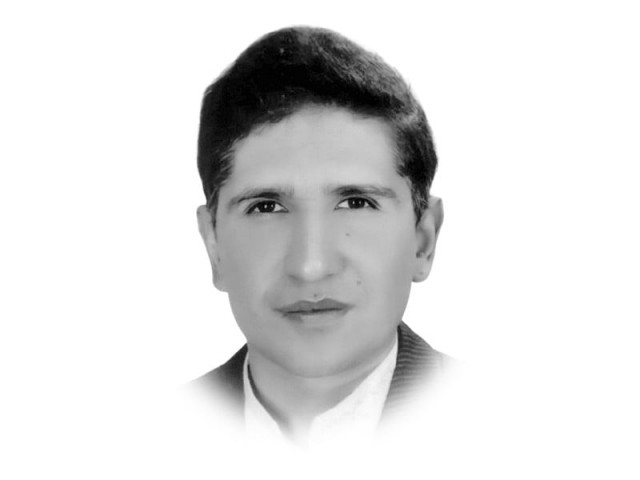Meesaq Centres of Punjab Police
Meesaq Centres act as direct points of contact between the police and minority communities

Policing in the modern world has undergone substantial transformation, particularly in its approach to minority communities. Historically, law enforcement agencies around the world have faced scrutiny for perpetuating systemic discrimination and marginalisation, often neglecting the voices of underrepresented groups. In the US, for example, police forces played pivotal roles in upholding segregation laws and curtailing civil rights movements, causing significant harm to African Americans and other minority populations. Similar patterns of bias have surfaced globally, especially in regions with colonial histories that have ingrained inequality into their structures.
In Pakistan, too, traditional policing approaches have often left minority communities feeling overlooked, their concerns buried within policies that seldom prioritise inclusivity. Against this backdrop, however, the Punjab Police has taken a notable step forward in addressing minority rights among Pakistan's police forces, implementing tangible reforms through the creation of Meesaq Centres. These centres, which were established in response to the Jaranwala incident, provide a safe space for minority communities in Punjab to engage directly with police.
Strategically located in districts with significant minority populations, the Meesaq Centres act as direct points of contact between the police and minority communities, reducing barriers that minorities often face in accessing justice or police services. The centres are staffed by individuals from minority backgrounds, which facilitates access for minority members seeking assistance. Police officers from minority communities are particularly well-suited to serve their own communities, as they understand firsthand the challenges faced by minority groups in Pakistan.
A core function of the centres is grievance resolution, ensuring that issues raised by minorities are heard and acted upon promptly. This approach provides a direct avenue for minority communities to voice their concerns, bypassing the bureaucratic delays that have often hindered their access to justice. Additionally, the centres promote interfaith harmony, organising awareness programs and meetings that encourage dialogue and mutual understanding among people of different religious backgrounds.
Another key mandate is the implementation of the national narrative, ensuring that policies of equality and unity are enforced locally. In the wake of incidents like the Jaranwala tragedy, the Meesaq Centres have been specifically tasked with reducing the climate of fear that permeated minority communities. Part of this effort involves offering policing services aimed at fairness and protection, regardless of one's faith.
This focus on minority rights is not just theoretical; it is operationalised through a range of services tailored specifically for minority needs, including improved services at Khidmat Markaz that are provided separately for minorities. The centres are present in 48 locations across Punjab, with a staff of 172. All interactions with the public are recorded and logged.
To date, they have recorded 80,777 visits, with over 39,000 cases resulting in active service provision. This high throughput implies that minorities are actively seeking these services, particularly in urban areas. For instance, the Meesaq Centre in Lahore has served 4,680 visitors, addressing a range of concerns and providing necessary support, while the Jhelum and Faisalabad centres have managed 2,826 and 4,943 cases, respectively.
Of course, as with any initiative, Meesaq Centres will face criticism, as is often the case with law enforcement-related reforms in Pakistan. Some may argue that these centres are not a solution to the multitude of challenges minority communities face, many of which are systemic and not easily addressed through "centres," however well-intentioned.
True, to a large extent there is also the issue of the rural-urban divide regarding resources available for these centres. While 13.42% of all recorded issues have been resolved, many grievances in rural areas still go unaddressed due to a lack of resources in these regions, such as Sargodha and Muzaffargarh, where minorities have limited access to essential services. Additionally, since most centre staff are lower-ranking officials, the centres' ability to address more complex cases is restricted.
To this I must add that many issues reported to the police in Pakistan are not within the remit of police duties, such as civil matters, which are often beyond the police's jurisdiction, especially in rural areas. Therefore, the proportion of resolved to unresolved issues does not fully reflect the effectiveness of service delivery. Disaggregating data by district may offer a better indicator of what each centre is accomplishing in terms of actual service provision.
To maximise these centres' effectiveness, additional infrastructure investment is needed, especially in underserved districts. A stronger leadership structure, with involvement from senior officials, could also help ensure that more complex cases are handled effectively. As the Meesaq Centres expand, regulatory issues may also arise in defining their jurisdiction and relationship to local police stations and other governmental bodies. Ensuring that these centres' mandate aligns with broader law enforcement goals while maintaining a distinct focus on minority rights will require thoughtful policy guidance and possibly legislative support.
A pertinent criticism arises; even if minority communities receive a cordial reception at the Meesaq Centres, what happens when they are referred to traditional police channels, such as local police stations, for criminal cases? Since police stations face their own challenges, couldn't this impact minority community individuals, and undermine the cordial reception they initially experienced at a Meesaq Centre?
Similarly, the success of these centres depends on their administration by police leadership; time will tell how effectively they are managed. Nonetheless, the centres' establishment and the high volume of service requests demonstrate their utility. The high case throughput at Meesaq Centres testifies to the demand for such services. Every interaction signifies a step toward building trust between minority communities and the police - a trust that has often been fragile. This high engagement level highlights the centres' value and underscores an unmet need within society.
By institutionalising these services, the Punjab Police is setting a precedent that may inspire similar reforms across Pakistan and beyond.
















COMMENTS
Comments are moderated and generally will be posted if they are on-topic and not abusive.
For more information, please see our Comments FAQ